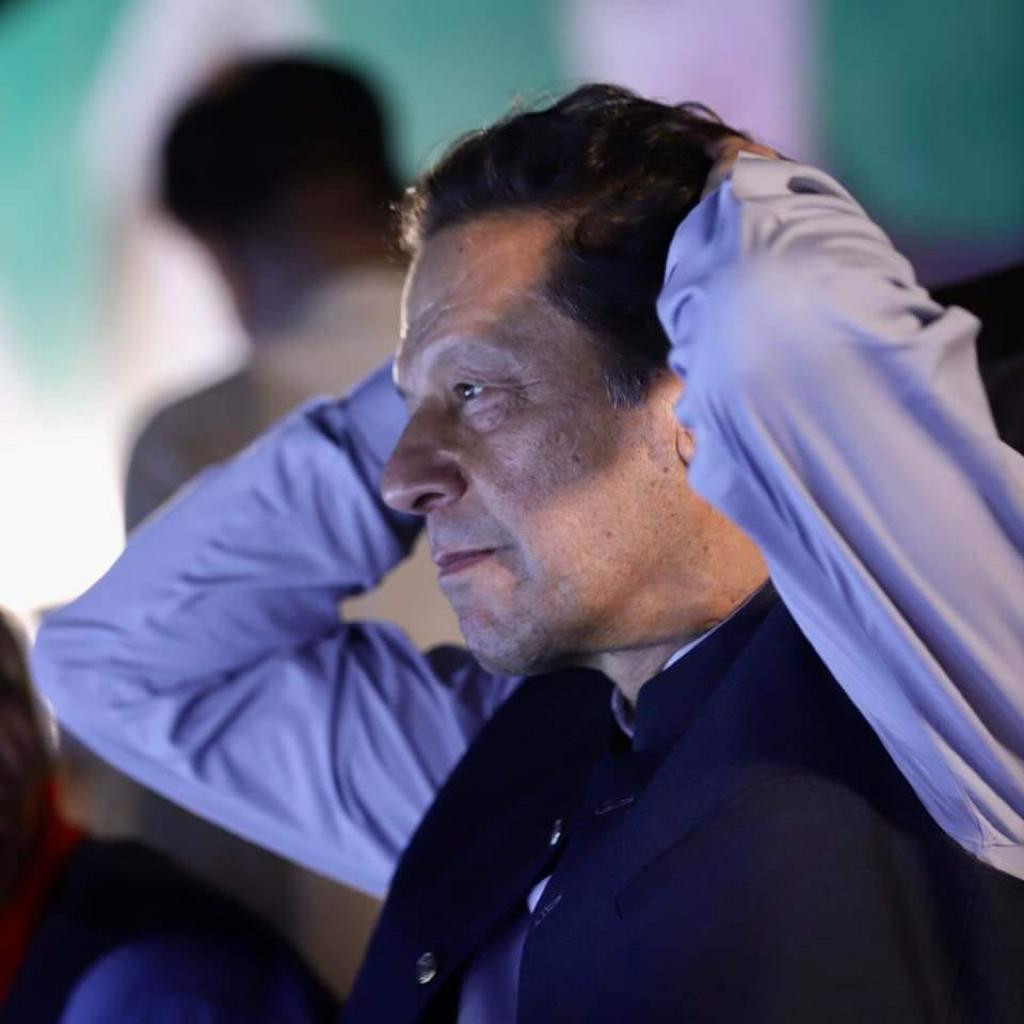
PTI Chairman and former premier Imran Khan on Saturday approached the Islamabad High Court against the Election Commission of Pakistan’s (ECP) decision to disqualify him in the Toshakhana (gift depository) reference.
However, the Registrar's Office raised several objections, including not attaching the biometric verification of the petitioner and a certified copy of the decision.
Despite the PTI chief’s insistence that his plea should be taken up on Saturday, the Registrar’s Office objected that the matter was not serious enough to be heard immediately.
The hearing of the petition will be held on Monday along with the objections of the Registrar's Office by a single-judge bench comprising IHC Chief Justice Athar Minallah.
The PTI chief submitted the petition to the IHC through his counsel, Barrister Ali Zafar. He has nominated the ECP secretary, National Assembly speaker and its secretary among others as respondents. It has been requested to declare the ECP’s decision null and void.
It has been stated in the plea that according to the office memorandum, gifts of less than Rs30,000 could be taken without payment. It added that gifts that cost more than this amount could be bought on 50% payment.
Before the PTI government, gifts above Rs30,000 could be obtained on 20% payment. The plea further stated that Imran had purchased 14 gifts from 2018 to 2021 with 20% to 50% payment.
Under the Election Act, members of parliament have to submit the details of available assets to the ECP by June 30.
The plea contended that if the asset was sold before June 30, its details were not needed to be provided to the commission.
It added that the petitioner had submitted the details of assets to the ECP every year. The petition argued that if the ECP had any objections to the statements submitted by the PTI chief, it could have asked him about it within 120 days under Section 137(4) but it did not do so.
It added that the NA speaker had unlawfully sent a reference against the PTI chief to the ECP that contained “false and baseless” allegations. The PTI chief contended that the ECP did not have the jurisdiction to decide “any questions of ‘corrupt practices and disqualification’” under the Election Act and Election Rules, 2017.
Read Ambiguity surrounds ECP order
“[The court should] declare that the reference itself is incompetent, illegal, unlawful and without lawful authority, mala fide and devoid of force and in the circumstances of the instant case, declare it null and void in the interest of justice,” the petition read.
The plea also sought the court’s directions to suspend the operation of the ECP’s order and restrain further proceedings by the commission till the disposal of the petition. A day earlier, the ECP had disqualified the PTI chairman under Article 63(1)(p) as it announced its verdict in the Toshakhana (gift depository) reference.
A four-member bench of the ECP declared Imran's National Assembly seat vacant as it unanimously decided that he had misled officials about the gifts he received from foreign dignitaries during his tenure as the prime minister.
The written ruling read that PTI chief had “intentionally and deliberately” violated the provisions contained in sections 137, 167 and 173 of the Elections Act, 2017 as he submitted a “false statement” and “incorrect declaration” to the ECP in the details of his assets and liabilities filed by him for the year 2020-21.
It added that the PTI chief had attracted disqualification under Article 63(1)(p) of the Constitution read with Sections 137 and 173 of the Elections Act, 2017.
“Consequently he ceases to be a member of the National Assembly of Pakistan and his seat has become vacant accordingly,” it read.
The ruling read as Imran had made false statements and an incorrect declaration, therefore he also committed the “offence of corrupt practices” defined under Sections 167 and 173 of the Elections Act, 2017, punishable under Section 174 of the Elections Act, 2017.
The commission ordered the initiation of criminal proceedings against the ex-premier for submitting a false statement under Section 190(2) of the Elections Act.




1725885571-0/Tribune-Pic-(9)1725885571-0-165x106.webp)


1731565450-0/BeFunk_§_]_-(15)1731565450-0.jpg)

1731562710-0/Untitled-design-(3)1731562710-0-270x192.webp)

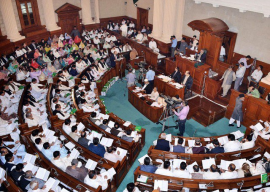
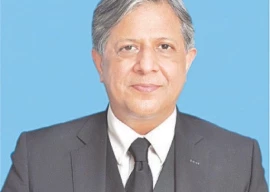
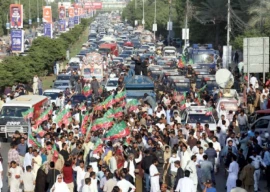

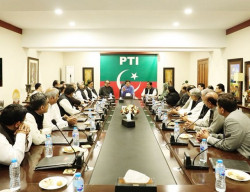






COMMENTS
Comments are moderated and generally will be posted if they are on-topic and not abusive.
For more information, please see our Comments FAQ